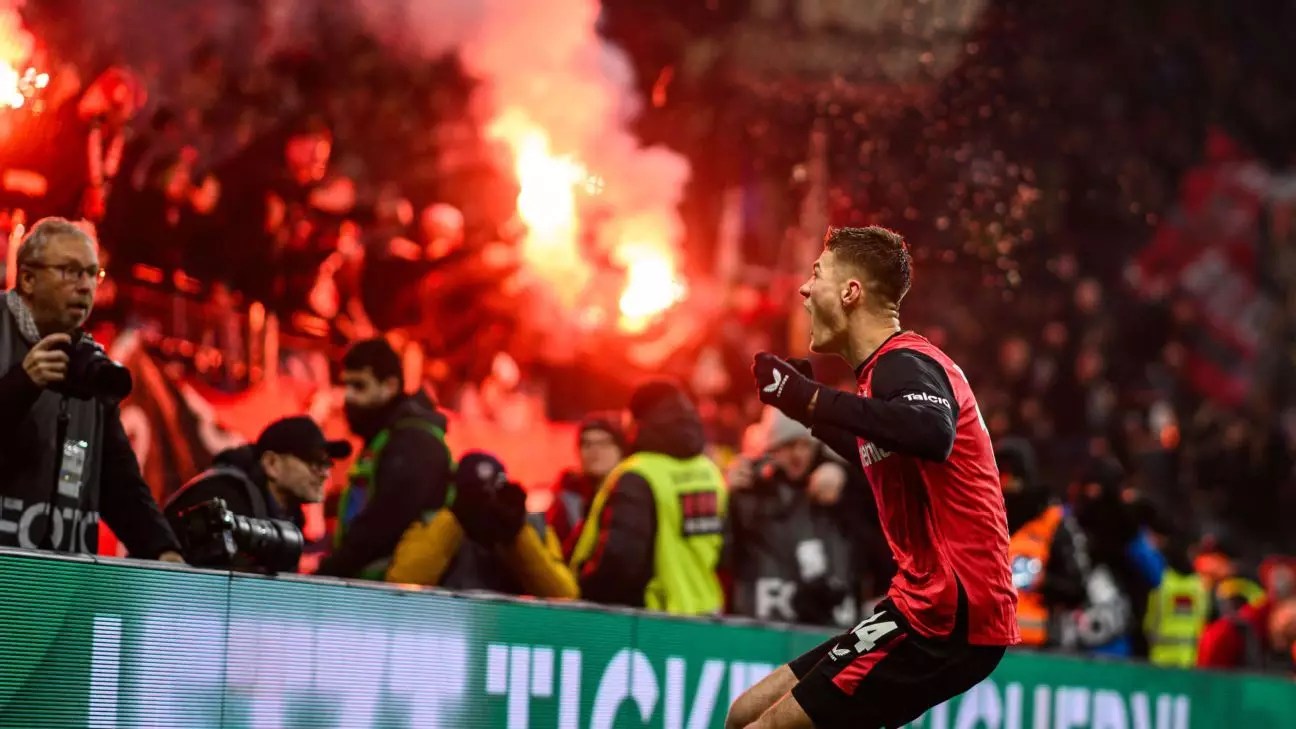The DFB-Pokal, Germany’s premier knockout cup competition, stands as a paragon of what a domestic tournament should represent. While many countries’ cup competitions have dwindled into mere afterthoughts on the football calendar, the DFB-Pokal has managed to preserve its allure and integrity, serving up rich experiences for fans and players alike. From its inception into the footballing schedule in August to the grand finale held at the iconic Berliner Olympiastadion in May, the tournament resonates deeply within the German football culture, celebrating not only the prowess of elite clubs but also allowing underdogs to shine under the spotlight.
Each year, the DFB-Pokal commences with a first round that captures the hearts of supporters across the nation. Lesser-known teams, often residing in the shadows of the Bundesliga giants, get their moment to enter the fray. This year, teams such as SV Rödinghausen and Teutonia Ottensen exemplified the tournament’s essence—every match swells with the potential for surprise, creating narratives that elevate the status of clubs that would otherwise go unnoticed. The structuring of the tournament is deliberate; games unfold systematically from week to week, accented by a sense of urgency and excitement, rather than random scheduling.
A notable aspect of the DFB-Pokal is the integrity clubs show towards the competition. Contrary to the behavior seen in some leagues where managers may rest star players, the DFB-Pokal has seen top managers compellingly field their strongest teams to chase glory. Bayer Leverkusen’s recent encounter against FC Cologne provides a salient example. Xabi Alonso’s decision to deploy a full-strength lineup against a fierce local rival shows the respect and esteem that is afforded to the cup. Moments of dramatic tension, such as Leverkusen’s last-minute equalizer, exemplify the unpredictability that keeps fans engaged and passionate about the outcome.
One of the crowning glories of the DFB-Pokal is its ability to consistently put underdogs against heavyweights and generate gripping storylines out of what might have simply been another run-of-the-mill match. This year, as the tournament progresses, clubs like Arminia Bielefeld come into play, bringing with them a historical legacy even as they navigate the choppy waters of lower leagues. Their matchup against Werder Bremen is not only a mere fixture; it’s a clash of histories, fanbases, and hopes of eventual glory.
The very essence of the DFB-Pokal encourages these traditional clubs to rise to their best form, showcasing talents and determination that often leaves spectators spellbound. The excitement of watching a top-Bundesliga side face a classic club from the lower tiers is a recurring theme in this tournament, fostering a sporting spirit that echoes the larger narratives of competition and resilience.
As the tournament unfolds, it doesn’t detract from or overshadow the excitement of Bundesliga action. The historical significance of clubs like Borussia Monchengladbach and Eintracht Frankfurt is interwoven into the fabric of German football culture. Their passionate fanbases pull impressive attendance figures, serving as a testament to the enduring appeal of these Traditionsvereine, or traditional clubs. Both clubs embody the narrative of German football—their on-the-field performances reflect the unwavering support of their followers, demanding success in every outing.
The atmosphere in stadiums like Gladbach’s current venue compared to the old Bökelbergstadion speaks to a legacy built on fiery football culture. Matches are pulsating with energy, and every fixture echoes loyalty, history, and ambition. Whether it’s finishing off a strong season or clashing with rivals, the passion amplified at every turn is palpable.
For avid fans of football, the DFB-Pokal offers an unmatched spectacle, with narratives that unfold in rotation, interlinking the underdogs with giants, tradition with modernity, and past with future potential. Neglecting this gem of a tournament means missing a vital part of Germany’s fascinating footballing tapestry. As the rounds progress, anticipation grows, and with it, the recognition that every kick, every goal, and every jubilant or devastated gasp from the crowd contributes to a legacy worth celebrating. The DFB-Pokal is not merely a cup; it is a vibrant culture, an echo of Germany’s rich footballing history, and a summer’s tale waiting to be fulfilled on the pitch.


Leave a Reply